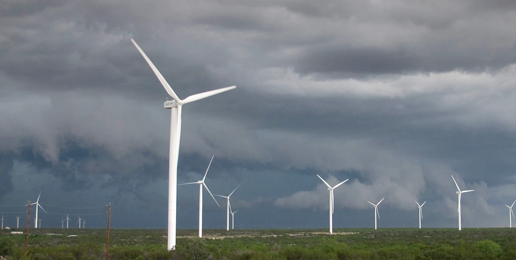
Written by Vijay Jayaraj
Newly inaugurated President Joe Biden is moving forward with his Clean Energy Agenda. At the heart of the proposed energy transition plans is the assumption that wind and solar offer cleaner and greener energy than fossil fuels, thus saving the world from a potential climate disaster.
Chuck Schumer, the Senate Democratic leader, tweeted on January 20, 2021, “The Senate Democratic majority will take up bold legislation to defeat the climate crisis by investing in clean infrastructure and manufacturing. It will create millions of good jobs for Americans, regardless of zip code.”
Biden announced earlier this month that he is planning to cancel the Keystone XL pipeline permit on his first day in office. Welcoming the move, Bernie Sanders tweeted, “I’m delighted that Joe Biden will cancel the Keystone permit[.] … With all of the [sic] major crises facing America, we must never lose sight of the most existential threat facing our planet: climate change.”
So the general idea is that fossil fuels are driving climate change and big oil projects like the Keystone pipeline must be abandoned. They expect renewables to substitute for fossil fuel and call them “clean and green.”
But is that the reality?
There is a dark secret that neither the Biden administration nor the mainstream media are willing to discuss or acknowledge. That is the fact that renewable power generating technologies like wind and solar depend on fossil fuels.
Grid Reality: Renewables Useless without Fossil Fuels
Solar panels cannot produce power at night or under significant cloud cover. Likewise, wind turbines cannot produce power when there is no wind, and even those in the wind hotspots (where there is higher potential to generate energy because of optimum wind speed) are efficient only during certain seasons.
The wind and solar industries plan to compensate for these drawbacks by using backup power. But the currently available backup solutions — including batteries, open-cycle natural gas (or diesel) turbines, hydroelectric units — are incapable of supporting wind and solar in a large-scale grid network. So fossil fuel plants — and nuclear plants — remain the only reliable backup solutions to maintain grid supply when large wind and solar networks fail to generate electricity.
A classic example of this renewable inefficiency and unreliability was observed earlier this month in Germany, where the 110 gigawatts of installed capacity of renewables completely failed to meet energy demand.
Besides being unable to meet demand, the generation was highly intermittent, and unpredictably so, thus exerting excess pressure on fossil fuel plants to meet demand.
When neither wind nor solar is operational, the impact of volatility in power generation will be passed on to customers, resulting in blackouts and increased cost of power.
We Do Not Need a Repeat of California
Such was the case during the recent California fires when Governor Gavin Newsom acknowledged that renewable energy was responsible for the blackouts in the state.
“We cannot sacrifice reliability as we move on,” he said. “We failed to predict and plan these shortages. And that’s simply unacceptable.”
The equation is quite simple in California: 36% of California’s power comes from renewables, and when they fail — during fires, heat waves, and every night — the state switches on the natural gas (fossil fuel) plants to meet the demand.
But even natural gas plants are being closed, and the state ends up importing electricity from neighbors that rely on fossil fuels to provide it.
As of now, the states that are called “leaders in renewable tech” depend on fossil fuel to save them from blackouts.
But if the entire country follows California’s example, shutting down fossil fuel plants, there will be unprecedented blackouts when wind and solar fail, because there will be no neighbors from whom to import the electricity.
Renewables simply cannot deliver the power needed at an affordable price. But blind faith that they can has proved disastrous in California and Germany, both of which are paying the price for their ardent embrace of renewables.
Biden’s Clean Energy Plan and his administration’s talk of “saving the planet” and developing “clean tech” to generate jobs may sound morally appealing. It’s really just pie-in-the-sky nonsense.
This article was originally published on American Thinker.




















